ATTENTION: Expert Coaches and Consultants
ATTENTION: Expert Coaches and Consultants
Strange Neuroscience Research Shows Coaches How To Close 5 More Deals Per Month, By Talking To The "Other Side of The Brain”
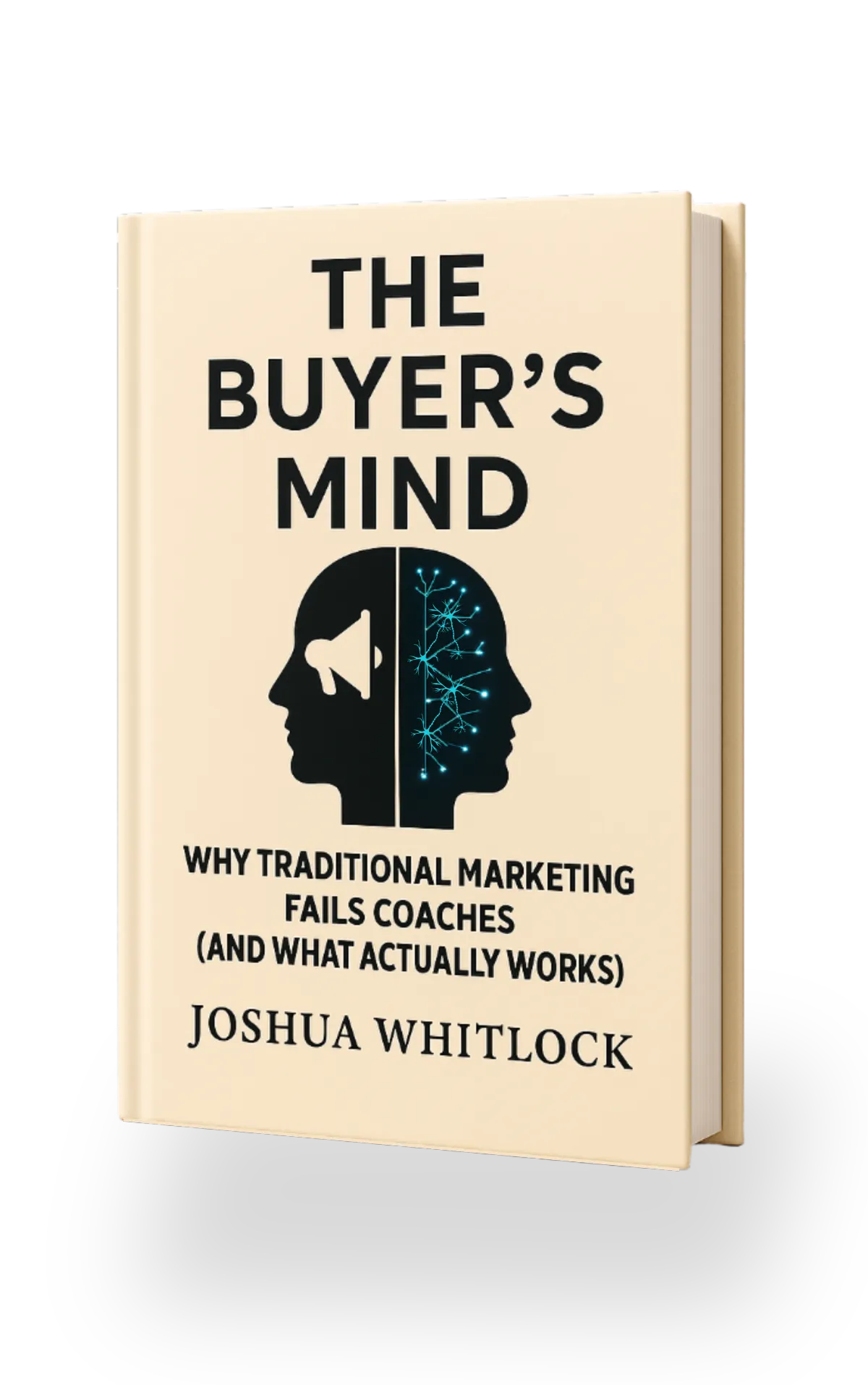

THE BUYER'S MIND
Joshua Whitlock leads a new, counterintuitive wave of high performance research that flies in the face of everything we thought we knew about “buyer psychology”.
“In less than one year, I was able to go from DM'ing people for testimonials, to becoming a professional speaker on stages in America, Europe, and Asia, with a conversion rate of 50%. The communication techniques are at play at every stage of business, as I use them not only to sell, but to get booked on stages, speak, and coach.”
— Santana

“The progression and learning I've experienced in the first couple of weeks has been absolutely exponential. Every time I talk to someone I'm able to talk to all parts of their brain and understand the root desires they're coming from.”
— Oli

Strange Neuroscience Research Shows Coaches How To Close 5 More Deals Per Month, By Talking To The "Other Side of The Brain”


- “Rated 4.9/5 by early readers”
THE BUYER'S MIND
Josh Whitlock leads a new, counterintuitive wave of high performance research that flies in the face of everything we thought we knew about “buyer psychology”.
“In less than one year, I was able to go from DM'ing people for testimonials, to becoming a professional speaker on stages in America, Europe, and Asia, with a conversion rate of 50%. The communication techniques are at play at every stage of business, as I use them not only to sell, but to get booked on stages, speak, and coach.”
— Santana

“The progression and learning I've experienced in the first couple of weeks has been absolutely exponential. Every time I talk to someone I'm able to talk to all parts of their brain and understand the root desires they're coming from.”
— Oli

You're brilliant at what you do. Your clients achieve transformations they never thought possible. They refer friends and colleagues because your work genuinely changes lives.
Yet when you try to explain your value to prospects, something goes wrong. Despite your expertise, credentials, and proven track record, potential clients seem hesitant. They ask for more information, want to "think about it," or simply disappear after initial conversations.
If this sounds familiar, you're not alone—and you're not broken.
The problem isn't your expertise. It's not your pricing. It's not even your market.
The problem is you're speaking to the wrong part of their brain.
You're brilliant at what you do. Your clients achieve transformations they never thought possible. They refer friends and colleagues because your work genuinely changes lives.
Yet when you try to explain your value to prospects, something goes wrong. Despite your expertise, credentials, and proven track record, potential clients seem hesitant. They ask for more information, want to "think about it," or simply disappear after initial conversations.
If this sounds familiar, you're not alone—and you're not broken.
The problem isn't your expertise. It's not your pricing. It's not even your market.
The problem is you're speaking to the wrong part of their brain.
The Shocking Truth About How People Really Buy
Here's what most coaches believe about their prospects: "If I just explain my value clearly enough, if I show them the logical benefits of working with me, they'll naturally want to buy."
This belief seems reasonable. After all, you're offering genuine transformation. Your methods work. Your clients get results.
But this belief is based on a dangerous myth.
Neuroscience research reveals a shocking truth: 95% of buying decisions are made unconsciously, by a part of the brain that doesn't respond to logic, features, or benefits the way you present them.
While you're crafting logical arguments about ROI and listing your certifications, your prospects' brains have already decided whether you're worth their attention. And no amount of rational explanation can override that initial unconscious verdict.
Why Traditional Marketing Fails Transformational Services
For decades, coaches have been taught to market with features, benefits, and rational arguments. This approach works for selling commodities—products where decisions are purely functional.
But transformational services operate in an entirely different psychological landscape. When someone considers investing in coaching, they're not just buying a service; they're contemplating becoming a different version of themselves.
This triggers complex emotional and neurological processes that logical arguments cannot influence.
See, I was just like you…
...Back in 2017, I was a promising rugby player with a scholarship to one of the top colleges in the UK. Then, disaster struck. Multiple knee injuries ended my athletic career, and I became a personal trainer.
When the pandemic hit, I went online like everyone else. I believed expertise was enough. I had studied everything about fitness and transformation, had the passion and knowledge to change lives.
But I was dead wrong about how business actually worked.
For months, I was trapped in "The Expert's Echo Chamber"—impressing people who already knew what I knew, while remaining invisible to those who desperately needed my help.
The breaking point came on November 24th, 2021.
I was down to £96 in my bank account. My last three "sure thing" prospects had ghosted me after what I thought were perfect consultations. Sitting in my grandmother's spare bedroom, I faced a terrifying reality: being right about transformation meant nothing if I couldn't help people recognize they needed it.
That night, I called my mentor Paul Counsel. He said something that changed everything:
"Josh, you're trying to convince the logical brain while people make decisions with their emotional brain. You're speaking to the wrong part of their mind entirely."
He introduced me to Decision Science—the neuroscience research showing that 95% of buying decisions happen unconsciously, not through logical evaluation.
Everything I believed about communication was backwards.
Within six months, I'd completely rebuilt my approach. That's when I realized I'd discovered something bigger than marketing techniques—I'd found the hidden language of human decision-making.
The Decision Science Revolution...
The Shocking Truth About How People Really Buy
Here's what most coaches believe about their prospects: "If I just explain my value clearly enough, if I show them the logical benefits of working with me, they'll naturally want to buy."
This belief seems reasonable. After all, you're offering genuine transformation. Your methods work. Your clients get results.
But this belief is based on a dangerous myth.
Neuroscience research reveals a shocking truth: 95% of buying decisions are made unconsciously, by a part of the brain that doesn't respond to logic, features, or benefits the way you present them.
While you're crafting logical arguments about ROI and listing your certifications, your prospects' brains have already decided whether you're worth their attention. And no amount of rational explanation can override that initial unconscious verdict.
Why Traditional Marketing Fails Transformational Services
For decades, coaches have been taught to market with features, benefits, and rational arguments. This approach works for selling commodities—products where decisions are purely functional.
But transformational services operate in an entirely different psychological landscape. When someone considers investing in coaching, they're not just buying a service; they're contemplating becoming a different version of themselves.
This triggers complex emotional and neurological processes that logical arguments cannot influence.
See, I was just like you…
...Back in 2017, I was a promising rugby player with a scholarship to one of the top colleges in the UK. Then, disaster struck. Multiple knee injuries ended my athletic career, and I became a personal trainer.
When the pandemic hit, I went online like everyone else. I believed expertise was enough. I had studied everything about fitness and transformation, had the passion and knowledge to change lives.
But I was dead wrong about how business actually worked.
For months, I was trapped in "The Expert's Echo Chamber"—impressing people who already knew what I knew, while remaining invisible to those who desperately needed my help.
The breaking point came on November 24th, 2021.
I was down to £96 in my bank account. My last three "sure thing" prospects had ghosted me after what I thought were perfect consultations. Sitting in my grandmother's spare bedroom, I faced a terrifying reality: being right about transformation meant nothing if I couldn't help people recognize they needed it.
That night, I called my mentor Paul Counsel. He said something that changed everything:
"Josh, you're trying to convince the logical brain while people make decisions with their emotional brain. You're speaking to the wrong part of their mind entirely."
He introduced me to Decision Science—the neuroscience research showing that 95% of buying decisions happen unconsciously, not through logical evaluation.
Everything I believed about communication was backwards.
Within six months, I'd completely rebuilt my approach. That's when I realized I'd discovered something bigger than marketing techniques—I'd found the hidden language of human decision-making.
The Decision Science Revolution...
Over the past two decades, advances in brain imaging technology have revolutionized our understanding of decision-making. We can now watch in real-time as brains process information and make choices.
What these studies reveal challenges everything traditional marketing teaches:
When presented with a buying decision, the brain doesn't carefully weigh pros and cons. Instead, the ancient decision brain—the part responsible for survival and resource allocation—makes an instant assessment based on six specific elements.
If any element is missing or misaligned, the brain defaults to "no" before conscious evaluation even begins.
This isn't theory. This is observable, measurable neuroscience being used right now by Fortune 500 companies to create predictable buying behaviors.
And now it’s available to you in my new book…
Over the past two decades, advances in brain imaging technology have revolutionized our understanding of decision-making. We can now watch in real-time as brains process information and make choices.
What these studies reveal challenges everything traditional marketing teaches:
When presented with a buying decision, the brain doesn't carefully weigh pros and cons. Instead, the ancient decision brain—the part responsible for survival and resource allocation—makes an instant assessment based on six specific elements.
If any element is missing or misaligned, the brain defaults to "no" before conscious evaluation even begins.
This isn't theory. This is observable, measurable neuroscience being used right now by Fortune 500 companies to create predictable buying behaviors.
And now it’s available to you in my new book…
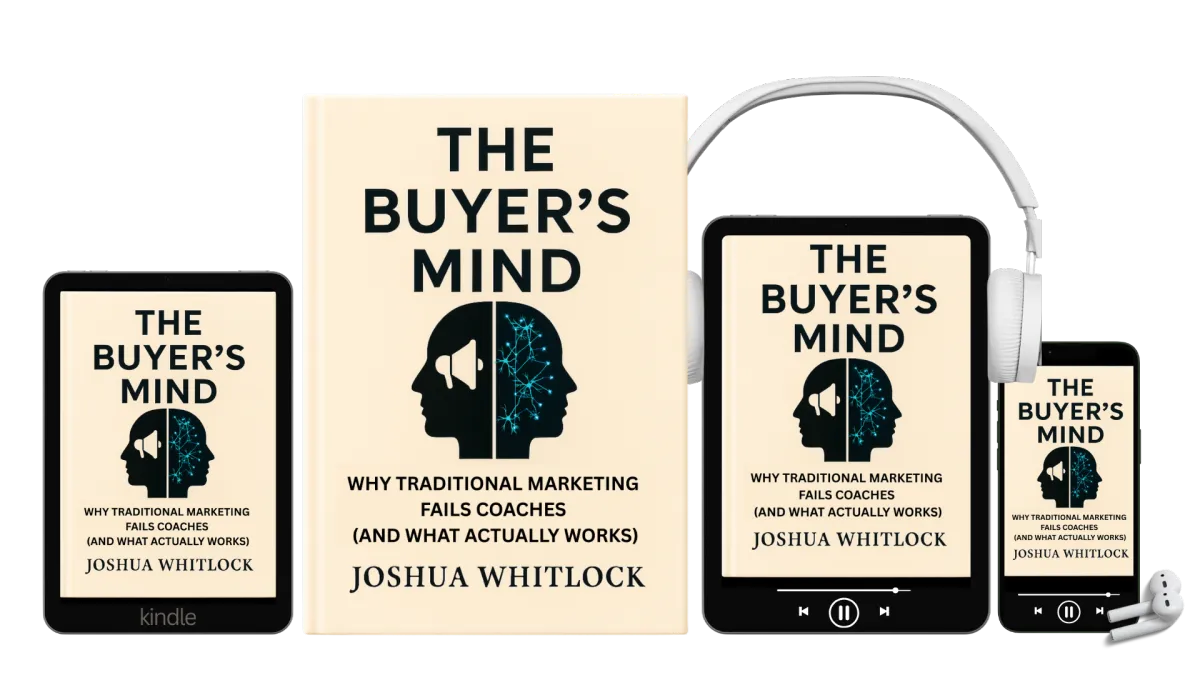
THE BUYER'S MIND

- “Rated 4.9/5 by early readers”
Introducing: The Buying Brain Blueprint™
A Revolutionary Framework That Translates Cutting-Edge Neuroscience Into Practical Marketing & Sales Applications
The Buying Brain Blueprint™ reveals the six elements that must be present for the decision brain to move from "no" to "yes":
The Six Elements of Decision Brain Language:
Attention
Capturing focus through novelty or pain
ME-Centricity
Speaking to self-focused perspectives
Emotional Triggers
Activating primal responses
Contrast
Creating clear distinctions
Visual Processing
Engaging the visual cortex
Tangible Outcomes
Concrete, measurable results
When properly applied, these elements create what prospects describe as "irresistible clarity"—the sense that you understand them perfectly and have exactly what they need.

THE BUYER'S MIND

- “Rated 4.9/5 by early readers”
Introducing: The Buying Brain Blueprint™
A Revolutionary Framework That Translates Cutting-Edge Neuroscience Into Practical Marketing & Sales Applications
The Buying Brain Blueprint™ reveals the six elements that must be present for the decision brain to move from "no" to "yes":
The Six Elements of Decision Brain Language:
Attention
Capturing focus through novelty or pain
ME-Centricity
Speaking to self-focused perspectives
Emotional Triggers
Activating primal responses
Contrast
Creating clear distinctions
Visual Processing
Engaging the visual cortex
Tangible Outcomes
Concrete, measurable results
When properly applied, these elements create what prospects describe as "irresistible clarity"—the sense that you understand them perfectly and have exactly what they need.

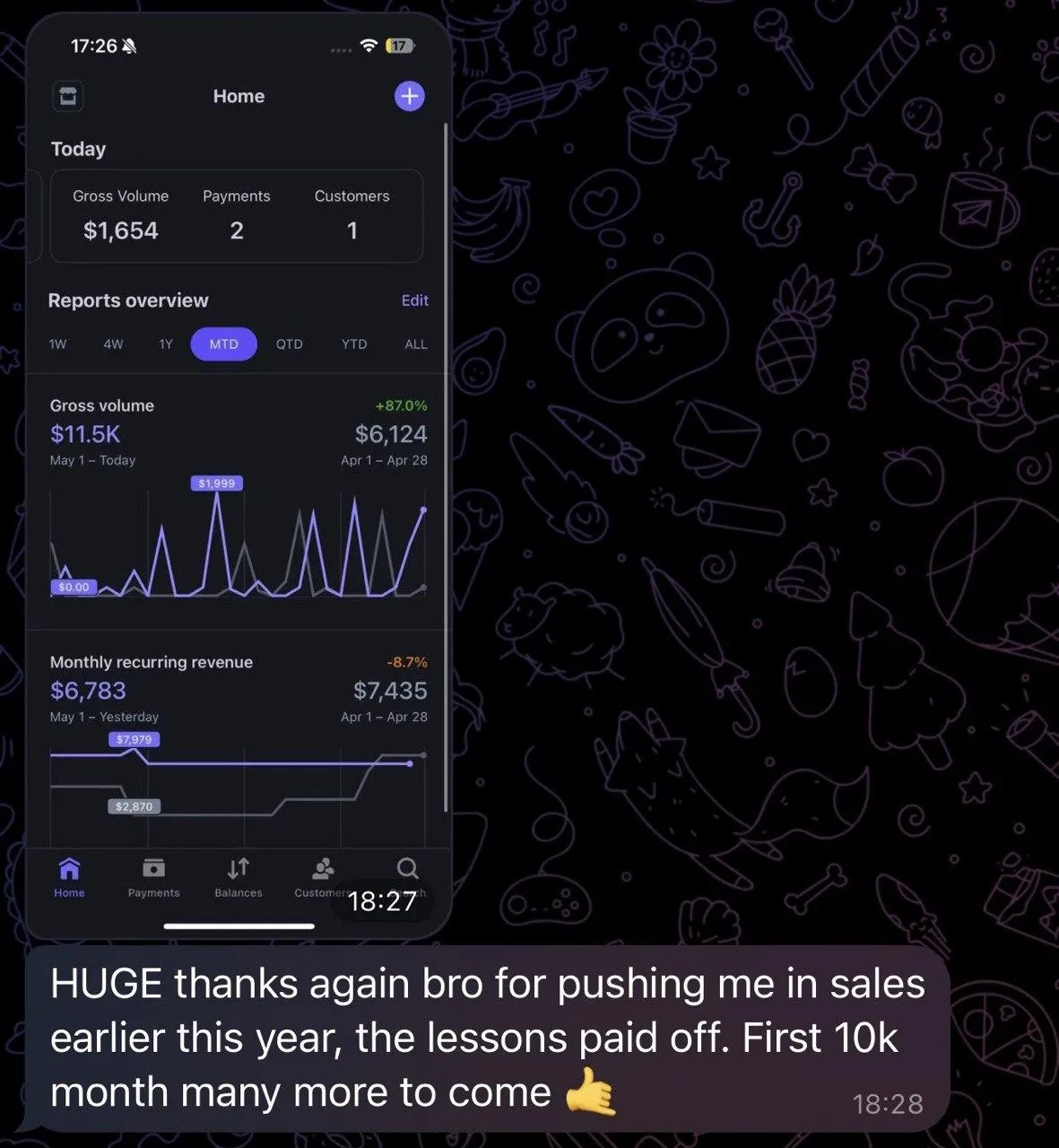
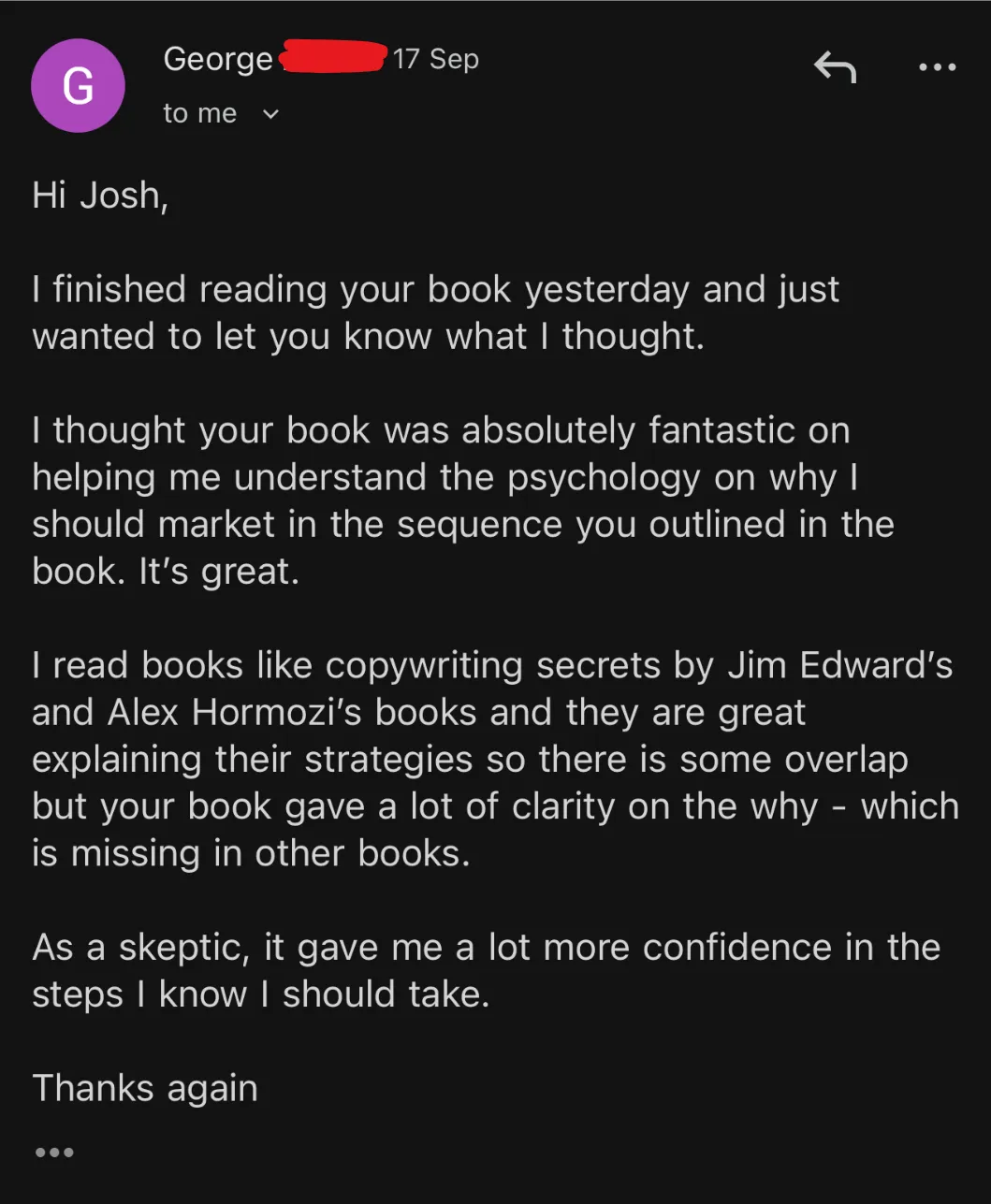
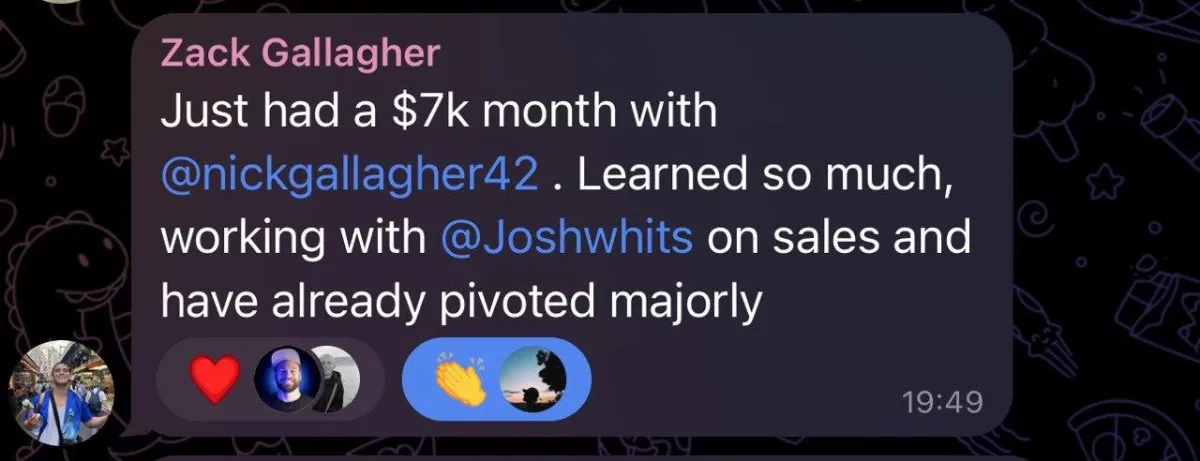
What You'll Discover Inside
The 95% Decision Myth That's Killing Your Coaching Business
Why everything you've been taught about "logical" buying decisions is backwards—and how this single misunderstanding explains why talented coaches with life-changing expertise can't fill their programs while less qualified coaches with slicker marketing attract all the clients.
The 3-Second Window That Determines Your Entire Sales Success
How your prospect's brain makes an irreversible "yes" or "no" decision about working with you in just 3-7 seconds—before conscious thought even begins—and why no amount of logical explanation can override this unconscious verdict.
The "Torches of Freedom" Campaign Secret That Created Modern Consumerism
Why everything you've been taught about "logical" buying decisions is backwards—and how this single misunderstanding explains why talented coaches with life-changing expertise can't fill their programs while less qualified coaches with slicker marketing attract all the clients.
Why Your Prospects Are Already Conditioned to Spend (But Not With You)
The shocking truth about the "Permission Economy"—people already spend money they don't have on things they don't need, but three invisible barriers prevent them from investing in the transformation they desperately want.
The Mining Salary to $15K/Month Transformation Secret
How Wade went from underground mining work to $6,000 coaching packages in just 30 days using strategic network activation—and why his visibility fears actually created his credibility rather than destroying it.
The Six-Element Language That Bypasses All Sales Resistance
Why missing even ONE element of the Buying Brain Blueprint™ causes your entire marketing message to fail—and how speaking all six elements makes prospects feel like you're reading their minds.
The Neurochemical Cocktail That Creates "Irresistible Clarity"
How to trigger the exact brain chemicals (oxytocin, dopamine, serotonin) that make prospects crave transformation—turning sales conversations from persuasion battles into confirmation conversations.
The Ancient Greek Questioning Method That Closes 70% of Sales Calls
Why Socrates never sold anything but changed everything—and how 2,500-year-old inquiry techniques cause prospects to convince themselves rather than feeling convinced by you.
The "Competence Trap" That Keeps Expert Coaches Broke
Why the most qualified coaches often struggle the most—and how your deep expertise becomes a liability when you try to share all of it instead of speaking to the specific emotional experience your ideal client is having right now.
The Five-Figure to Seven-Figure Mindset Shift That Changes Everything
The exact moment when coaches stop hoping prospects will work with them and start evaluating whether prospects are ready for transformation—and why this internal shift creates external results that feel like magic.
Is This Right For You?
This system is designed for experienced coaches and consultants who deliver genuine results but struggle with consistent client attraction.
This is not for those who:
Expect overnight success without implementing consistently
Resist learning how the brain actually makes buying decisions
Prefer competing on price rather than value
Want quick tricks instead of mastering fundamental principles




What You'll Discover Inside
The 95% Decision Myth That's Killing Your Coaching Business
Why everything you've been taught about "logical" buying decisions is backwards—and how this single misunderstanding explains why talented coaches with life-changing expertise can't fill their programs while less qualified coaches with slicker marketing attract all the clients.
The 3-Second Window That Determines Your Entire Sales Success
How your prospect's brain makes an irreversible "yes" or "no" decision about working with you in just 3-7 seconds—before conscious thought even begins—and why no amount of logical explanation can override this unconscious verdict.
The "Torches of Freedom" Campaign Secret That Created Modern Consumerism
Why everything you've been taught about "logical" buying decisions is backwards—and how this single misunderstanding explains why talented coaches with life-changing expertise can't fill their programs while less qualified coaches with slicker marketing attract all the clients.
Why Your Prospects Are Already Conditioned to Spend (But Not With You)
The shocking truth about the "Permission Economy"—people already spend money they don't have on things they don't need, but three invisible barriers prevent them from investing in the transformation they desperately want.
The Mining Salary to $15K/Month Transformation Secret
How Wade went from underground mining work to $6,000 coaching packages in just 30 days using strategic network activation—and why his visibility fears actually created his credibility rather than destroying it.
The Six-Element Language That Bypasses All Sales Resistance
Why missing even ONE element of the Buying Brain Blueprint™ causes your entire marketing message to fail—and how speaking all six elements makes prospects feel like you're reading their minds.
The Neurochemical Cocktail That Creates "Irresistible Clarity"
How to trigger the exact brain chemicals (oxytocin, dopamine, serotonin) that make prospects crave transformation—turning sales conversations from persuasion battles into confirmation conversations.
The Ancient Greek Questioning Method That Closes 70% of Sales Calls
Why Socrates never sold anything but changed everything—and how 2,500-year-old inquiry techniques cause prospects to convince themselves rather than feeling convinced by you.
The "Competence Trap" That Keeps Expert Coaches Broke
Why the most qualified coaches often struggle the most—and how your deep expertise becomes a liability when you try to share all of it instead of speaking to the specific emotional experience your ideal client is having right now.
The Five-Figure to Seven-Figure Mindset Shift That Changes Everything
The exact moment when coaches stop hoping prospects will work with them and start evaluating whether prospects are ready for transformation—and why this internal shift creates external results that feel like magic.
Is This Right For You?
This system is designed for experienced coaches and consultants who deliver genuine results but struggle with consistent client attraction.
This is not for those who:
Expect overnight success without implementing consistently
Resist learning how the brain actually makes buying decisions
Prefer competing on price rather than value
Want quick tricks instead of mastering fundamental principles
Frequently Asked Questions (FAQs)
Is this book only for business coaches?
While many examples focus on business coaching, the neurological principles apply to any transformation-based service, from health coaching to relationship coaching to career coaching.
As someone new to neuroscience-based marketing, will this be too advanced?
The book provides complete step-by-step guidance for beginners while offering advanced techniques for experienced practitioners. Each chapter builds systematically on the previous one.
Do I need a large budget to implement these strategies?
Not at all! The Buying Brain Blueprint™ focuses on communication principles that work regardless of budget. You can implement these strategies through social media, email, or even casual conversations.
If I'm not naturally "salesy," can I still succeed with this approach?
Absolutely! This system actually makes sales feel more natural and authentic because you're communicating value in the brain's native language rather than forcing logical arguments.
How quickly can I expect to see tangible results?
While individual timelines vary, coaches typically report improved engagement and conversion within 30-60 days of consistent implementation.
Frequently Asked Questions (FAQs)
Is this book only for business coaches?
While many examples focus on business coaching, the neurological principles apply to any transformation-based service, from health coaching to relationship coaching to career coaching.
As someone new to neuroscience-based marketing, will this be too advanced?
The book provides complete step-by-step guidance for beginners while offering advanced techniques for experienced practitioners. Each chapter builds systematically on the previous one.
Do I need a large budget to implement these strategies?
Not at all! The Buying Brain Blueprint™ focuses on communication principles that work regardless of budget. You can implement these strategies through social media, email, or even casual conversations.
If I'm not naturally "salesy," can I still succeed with this approach?
Absolutely! This system actually makes sales feel more natural and authentic because you're communicating value in the brain's native language rather than forcing logical arguments.
How quickly can I expect to see tangible results?
While individual timelines vary, coaches typically report improved engagement and conversion within 30-60 days of consistent implementation.
About Joshua Whitlock
Joshua is a leading authority on neuroscience-based marketing for coaches and consultants. After transforming his own practice from £96 in the bank to multiple six-figures using decision science principles, he has helped hundreds of coaches break through the communication barriers that keep them invisible to their ideal clients.
He has also worked with some of the most influential figures in the health & wellness space, including Ben Patrick (@kneesovertoesguy) at ATG as director of sales & marketing.
Joshua's work bridges cutting-edge neuroscience with practical marketing applications, creating systems that feel authentic while generating predictable results. His approach has been validated across dozens of coaching niches, from fitness to business to personal development.
When he's not helping coaches claim their expertise and communicate it clearly, Joshua enjoys traveling, studying behavioral psychology, and exploring how ancient wisdom applies to modern influence.

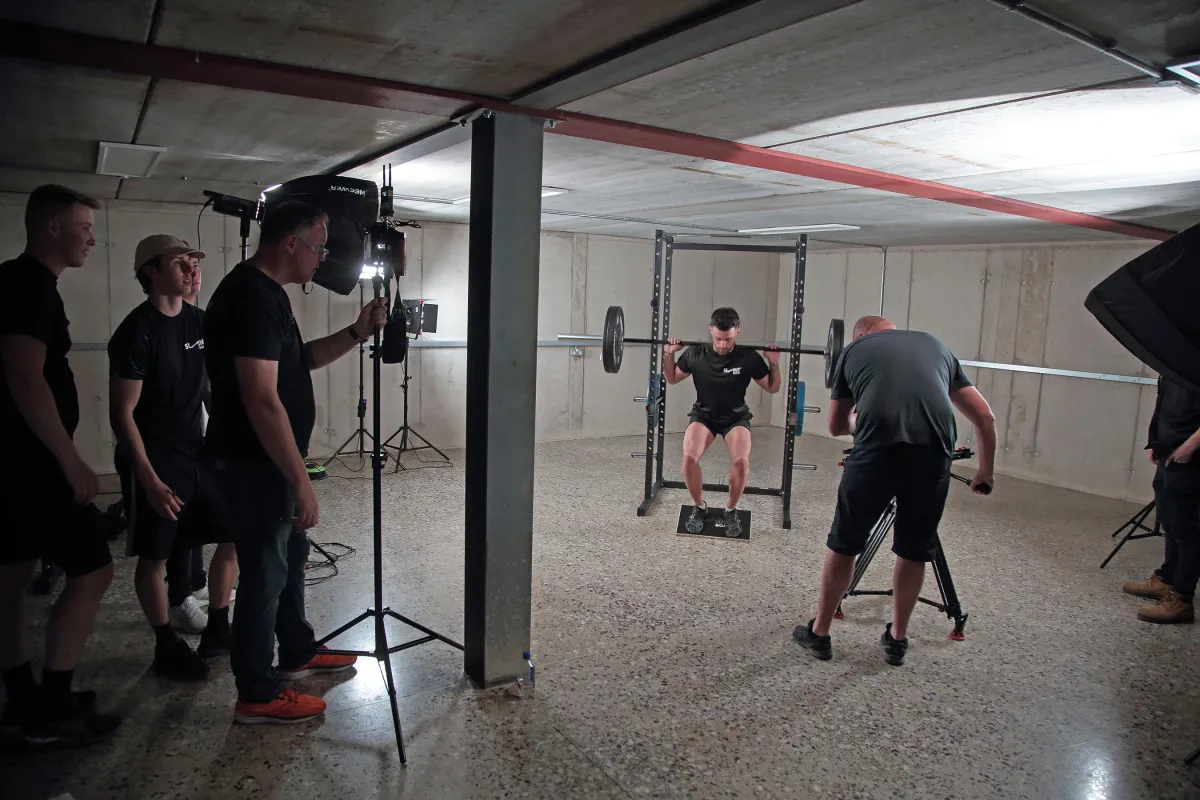
© Copyright 2025 The Buyer's Mind. All rights reserved.
About Josh Whitlock
Joshua is a leading authority on neuroscience-based marketing for coaches and consultants. After transforming his own practice from £96 in the bank to multiple six-figures using decision science principles, he has helped hundreds of coaches break through the communication barriers that keep them invisible to their ideal clients.
Joshua's work bridges cutting-edge neuroscience with practical marketing applications, creating systems that feel authentic while generating predictable results. His approach has been validated across dozens of coaching niches, from fitness to business to personal development.
When he's not helping coaches claim their expertise and communicate it clearly, Joshua enjoys traveling, studying behavioral psychology, and exploring how ancient wisdom applies to modern influence.


© Copyright 2025 The Buyer's Mind. All rights reserved.